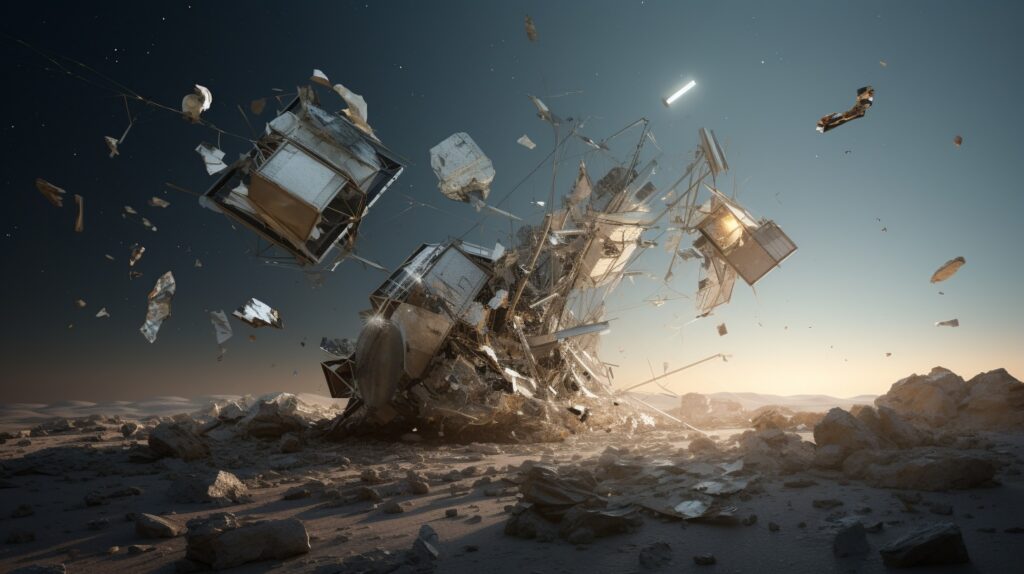Estimated reading time: 4 minutes
Today it is difficult to imagine our life without artificial satellites of the Earth. They not only provide communications and broadcasting, but also perform a lot of other important functions – from weather monitoring to vehicle navigation. The stability of the modern world largely depends on the reliable operation of orbital vehicles. What if they suddenly stop working? What awaits us in a world without satellites?
Reasons for the fall of all satellites
For all the satellites to fail at once, something out of the ordinary must happen. For example, these could be the following planetary events:
- A powerful solar flare, emitting a stream of charged particles. Under their influence, the electronics of all spacecraft fail.
- The Earth’s collision with a cloud of cosmic dust after passing through the tail of a comet. Dust disables satellites by clogging their systems.
- Global cooling due to eruptions of several major volcanoes at once. Volcanic clouds in the atmosphere interfere with the operation of satellite solar panels. Of course, these scenarios are very unlikely, but let’s assume for a moment that some kind of similar catastrophe did happen suddenly. What’s next?
First consequences for the technosphere
After the failure of all satellites, people will face the real “dark ages”. First of all, all communication systems based on satellites will collapse:
- Mobile communications and the Internet will completely disappear. People will not be able to make calls or go online via smartphones.
- Global satellite television networks will collapse. Billions of viewers will be left without their usual channels and shows.
- Navigation systems like GPS and GLONASS will stop working. Navigators in transport, including aviation, will fail.
- Banking operations, the stock market and other financial infrastructure relying on satellites will be seriously disrupted.

Thus, the failure of satellites will lead to a real information collapse and destroy the usual system of communications and control. This could not but affect all spheres of people’s lives.
Consequences for the population
In addition to “turning off” the Internet and TV, which in itself will be a blow to many, the loss of satellites will immediately affect the livelihoods of people around the world:
Firstly, the system for monitoring and forecasting hazardous natural phenomena will be under attack. Without the eyes of their companions, people risk being defenseless against hurricanes, tsunamis, and floods.
Secondly, without navigation systems, air and sea transport will practically stop. This will paralyze tourism and cargo transportation and disrupt the supply of goods and raw materials to many regions.
Thirdly, agriculture will suffer severe damage, losing the ability to monitor the condition of crops from satellites. It will become more difficult to maintain food security.
It is obvious that the complete loss of satellite constellations would be a truly civilizations catastrophe, capable of rolling the planet back decades. But even in such a situation, humanity will be able to adapt over time. What might this look like?
- People will return to classic communication channels such as radio, wire broadcasting and telephony. The surviving lines and transmitters will allow us to establish at least some kind of information exchange system.
- “Physical” navigation methods using beacons, maps and compass will be restored. Transport links between cities and countries will gradually improve.
- Classical approaches to weather forecasting using ground-based measurement and calculation methods will return. A network of weather stations will also be deployed for early warning of hazardous phenomena. Of course, these are only temporary “crutches” that cannot completely replace the current high-tech communication and monitoring systems built on the basis of satellites. Sooner or later, humanity will still have to restore orbital groups, otherwise the planet risks sliding into a new Middle Ages.
What do you think about this? Write in the comments!


